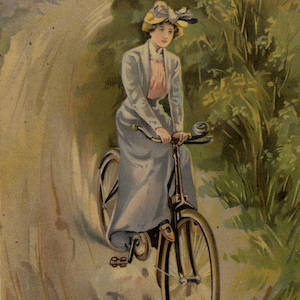Culture

Emory Women Writers Resource Project
The subjects covered are diverse and include commentaries on such topics as nature, native-white relations, emancipation, imperialism, social and sexual mores, wet nursing, Christianity, and women’s suffrage.Komori [Nursemaid] Songs (kazoe-uta)
During the modern Imperial period (1868-1945), daughters of poor Japanese families worked as komori taking care of their own siblings or working as indentured servants for other poor families.

Louisa's World
[Instructors] might invite students to reconstruct Collins’s expectations and attitudes towards various topics, tracing perspectives that she noted as exceptional.Bhakti Poets: Poem, Bahinabai
Bhakti poets—who were in some cases lower-caste Hindu women—and their audiences drew emotional sustenance from these verses, which expressed a pure devotion to Hindu deities.
The Scouts' War Dance: Sir Robert Baden Powell's adaptation of a Zulu chant
Like much of the public in turn-of-the-century Britain, Baden Powell was fascinated by "primitive" cultures. Although he claimed an expert knowledge of Africa from his service in colonial wars, Baden Powell was hardly an authority on Zulu customs.

Mapping Margery Kempe: A Guide to Late Medieval Material and Spiritual Life
This website is a collection of resources, particularly strong in visual content, that examines the social context in which Kempe produced her narrative.Imperialism in North Africa: Autobiography, Leila Abouzeid
In Morocco, after 1912, the colonial regime eschewed, for the most part, introducing overt changes into Islamic personal status law.
Imperialism in North Africa: Personal Account, Captain Carette
To the east of Algiers is a rugged mountainous region, the Kabylia, whose loftiest peak is named after a holy woman, Lalla Khadija.
Dona Marina, Cortes’ Translator: Poem, La Malinche
A well-known Chicana poem about Malinche. Tafolla took inspiration from the famous 1967 poem of the Chicano movement, “Yo Soy Joaquín,” but rewrites from an explicitly feminist perspective.
Dona Marina, Cortes’ Translator: Poem, Como Duele, 1993, Women in World History
One of the earliest meditations on Malinche and her meaning published by a Chicana in the United States. This narrative explores Malinche’s fate and her abilities to negotiate difficult and competing cultural demands.